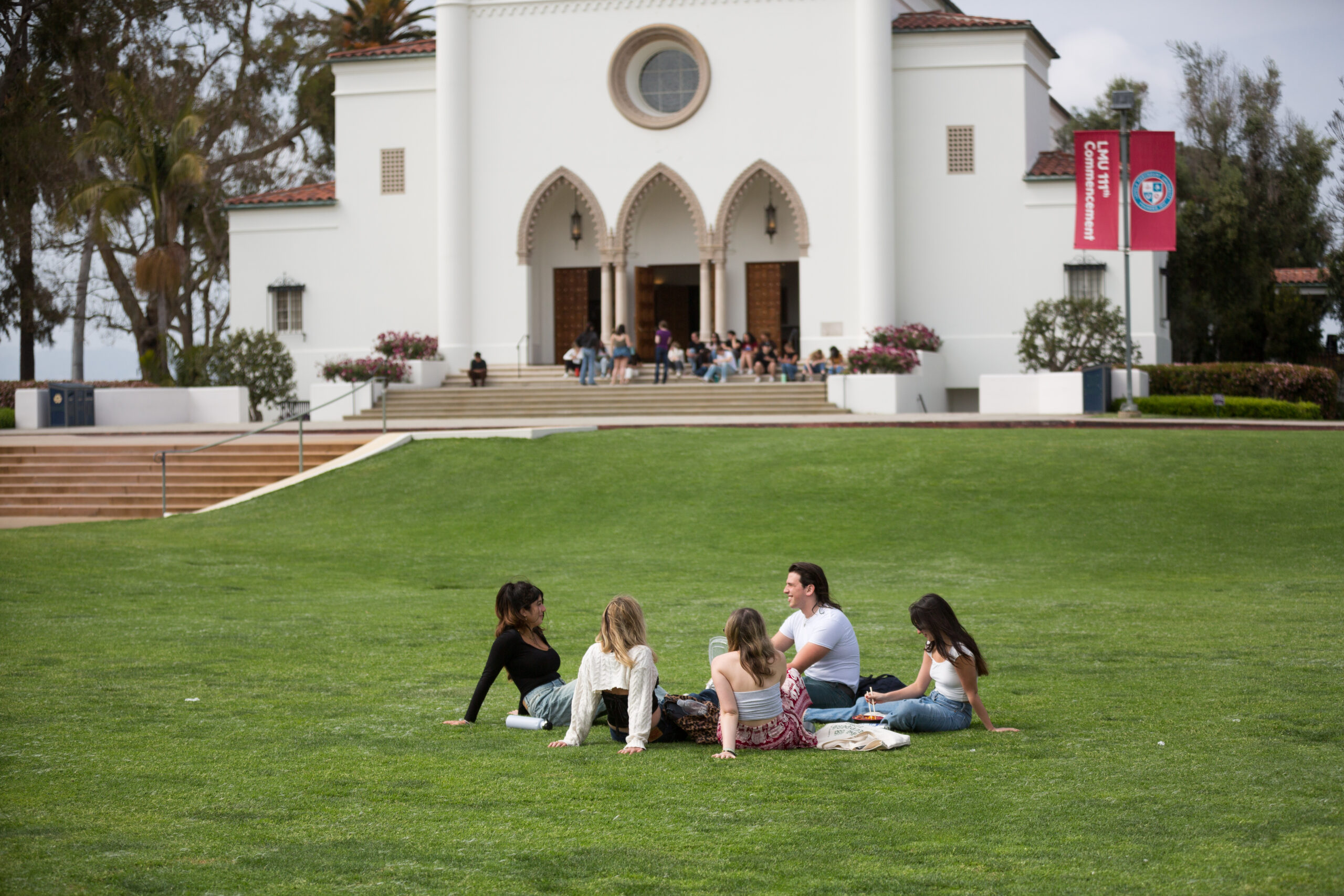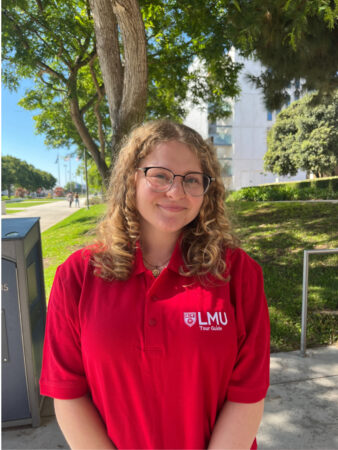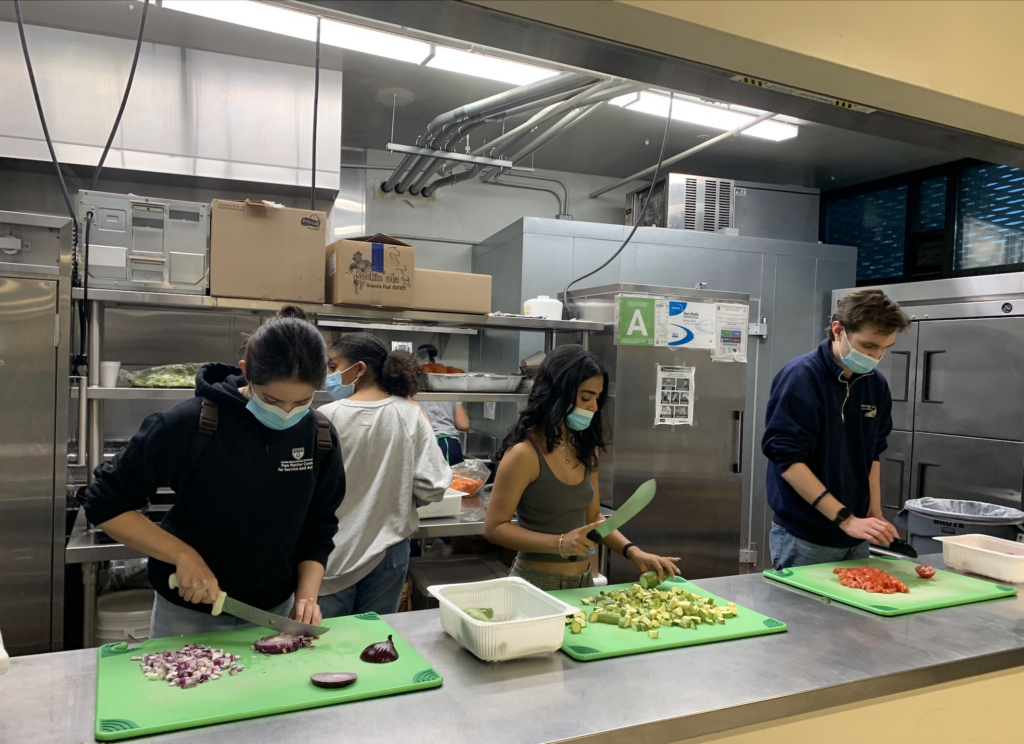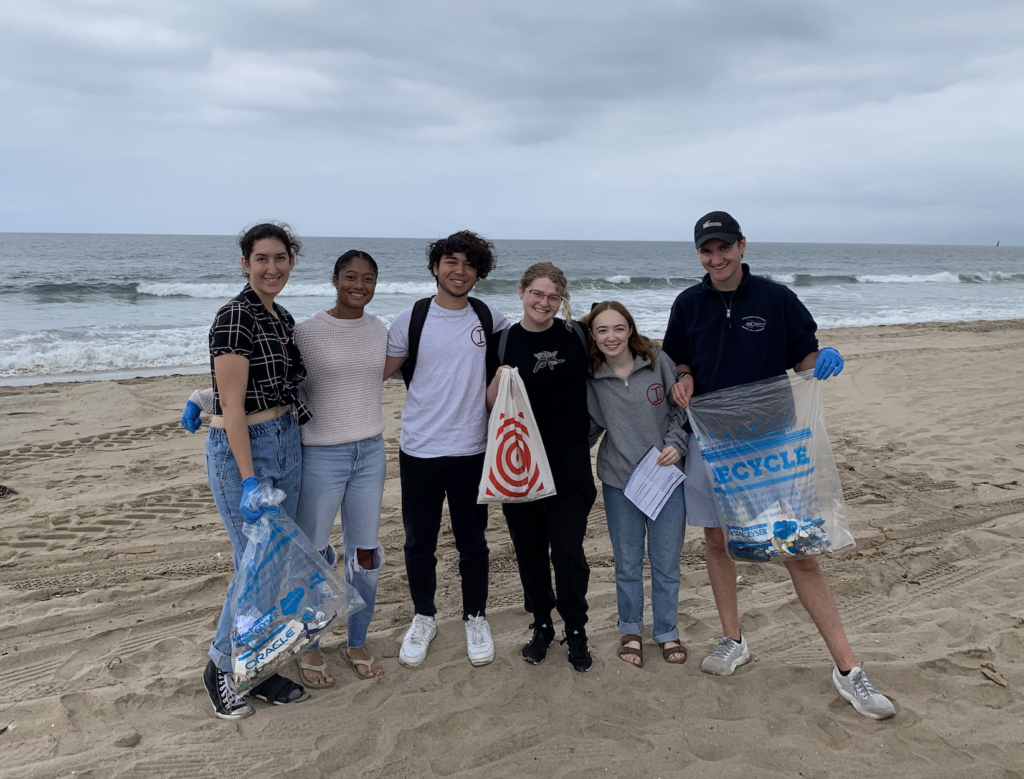
LMU Restore and Ignatians Service Organization are the hosts for Restorative Justice Week, Nov. 8-15, to bring attention to restorative justice at LMU and in the local L.A. community. As more areas of campus embrace restorative practices in a broad spectrum, this specialized week examines what restorative practices look like and how adopting a restorative culture at LMU can bring the community together.
Restorative justice takes a communal approach for inclusive and accountable communities to repair harm and gain an understanding of one another, something that originated in indigenous cultures. The focus of this practice began at LMU as an alternative approach for student conduct cases and has expanded to practices that occur both in the academic and extracurricular settings, including faculty facilitating what is commonly known as circle practices to their classroom settings and adding restorative practices to their syllabi. Restorative Justice Week brings all the pieces that the community is doing across campus to contribute and invites everyone, students, staff, and faculty, to find ways they can foster collaboration and connection to build a restorative culture at LMU.
“This is something I would love for folks to experience at LMU because we have been doing restorative justice work with our campus community for the past four to five years,” said Julia Wade, Ed.D., associate director of restorative practices at LMU and a moderator for the Ignatian Service Organization. The idea of connecting restorative practices to students has been on her mind for the past couple of years as she found more ways for the work of restorative justice to intersect with the campus community. After seeing what other universities are doing and how Restorative Justice Week is celebrated around the globe, Wade really wanted to find a way to educate the community on the restorative justice work happening at LMU and honor how it is being celebrated. “This year’s collaboration was born out of my work as a moderator for the Ignatians Service Organization, whose work as an organization is centered on restorative justice,” Wade said. “Their placements are directly tied to restorative justice work or reentry from folks who have been incarcerated.”

Elisabeth Gothelf ’24, double majoring in theatre arts and sociology with a minor in philosophy, serves as the social justice chair for the Ignatians Service Organization and as a tour guide. Her role has been to educate their members on the current social justice issues relating to the organization’s focus. “In the Ignatians Service Organization, our focus is on social justice and human rights issues, and I have been able to teach members of our organization about these issues and how they pertain to our placements and how we can incorporate restorative justice in how we treat others at our placements and LMU,” said Gothelf. “Restorative Justice Week has been really important to me this year because I really wanted to show what LMU is already doing and what we could be doing as individuals to promote a restorative culture because everyone deserves to be heard and understood on a day-to-day basis. And especially when something goes wrong within a community, it’s good to have members of the LMU community who can hear everyone out and make sure that things get addressed in a restorative way so people aren’t afraid when something goes wrong that they won’t be exiled from the community, everyone deserves a second chance and to be treated kindly and respectfully in every situation.”

Restorative practices have come alive for Gothelf and other Ignatians members through the placements they serve each week, like the Guadalupe Homeless Project, Francisco Homes, L.A. LGBTQ Center, and beach clean-ups where they partner with Heal the Bay coastal communities. “The one I go to the most often and I get the most excited about is the Guadalupe Homeless Project because we have been serving the same familiar men each week we go to visit,” said Gothelf. “They welcome us in with open arms, and it’s exciting because we just get to show up and do exactly what they need us to do depending on the day, things like cooking, cleaning, setting up, talking with the men at the project or sitting down and having a meal with them. It’s showing up and being what they need you to be because, in any community, you bring unique talents and facets to the table, but you can’t be helpful unless you are addressing their needs already. So, learning to come in with a listening ear and an open heart has been beneficial. We’re uplifting these communities into what they already are and what they want us to do. It’s perfect to come in with the mindset as a helper, and that can help me in the future because it changes the mindset of how I approach problems and new opportunities.”

For a staff member whose work is centered on restorative justice on campus, Wade has found so much joy serving as the moderator for the Ignatians as they take on this work both as students and as individuals serving in the local community. “As a staff member doing restorative work on campus, I get the opportunity to see this work through the student lens now, how it is being used in the local community, and the learning that happens through this work and human connection when people are vulnerable with them,” said Wade. “For me, it’s a constant reminder of how unique our education here at LMU is and how this work is so tied to our mission of the service of faith and promotion of justice. What they see and hear about in the community are ideas and things they are learning about in their academic environment, and they also can have a co-curricular experience mirroring those concepts in a real-world environment. The origin of this work on our campus was centered around harm repair work and being more responsive, but that has transformed to us talking about how we build a restorative culture on campus at LMU and being proactive with these practices.”
Gothelf will be leading the “Understanding and Practicing Restorative Justice” event happening this week on Wednesday, Nov. 8, at 6:30 p.m. in partnership with Wade and LMU Restore. “I hope students understand how restorative justice can be used every single day in the way we live, approach others, handle conflict, and in the way we act in our community at LMU,” said Gothelf. “There’s a misconception that restorative justice is only on a judicial and probation level, but it’s a lifestyle, it’s a mindset, it’s about how well you listen and relate to others and ask questions without bringing previous judgments to the table, how that can be so useful in living as an empathetic and open-minded individual that could integrate into any community.”
The schedule for the week includes:
Wednesday, Nov. 8
Wellness Wednesday Tabling with Campus Partners
Regents Grass, 11 a.m.- 2 p.m.
Understanding and Practicing Restorative Justice
University Hall ECC 1857, 6:30-8 p.m.
Stop by and learn about restorative justice on an individual and institutional level. Engage in a short practice session led by restorative justice facilitators. Hosted by Ignatians Service Organization and LMU Restore.
Circle with ACCESS Program*
Community building circle focused on reflection during the weekly class period.
Friday, Nov. 10
Restorative Justice Facilitators Work Group
Malone 306, 2-3:30 p.m.
This group, open to students, faculty, and staff, meets monthly to break bread over lunch and engage in community-building circle practice, and skill-building to foster a restorative culture on campus.
Iggie Talent Night
University Hall 1000, 7-9 p.m.
Annual talent show in support of Ignatians Service Organization. Everyone is welcome to perform.
Saturday, Nov. 11
Service Event for Guadalupe Homeless Project
St. Rob’s’ 239, 11:30 a.m.-1 p.m.
Join Ignatians Service Organization in packing hygiene kits to support men at the Guadalupe Homeless Project.
Tuesday, Nov. 14
Sorority and Fraternity Life ASPIRE Workshop*
Through community-building circles, SFL members engage in dialogue with one another around a focus area from the ASPIRE framework so that they can bring what they learn back to their chapters.
Social Psychology 4002: Restorative Practices Session 5*
This course utilizes restorative practice tools such as circles to facilitate learning and understanding of individual and group dynamics in the community context.
Wednesday, Nov. 15
EDLA 491 Community Leadership Seminar: Restorative Culture Building Class*
This course provides experiential opportunities to explore leadership through the lens of restorative culture-building.
*Denotes a closed activity.
Since 2018-19, LMU Restore, in partnership with LMU’s Center for Urban Resilience (CURes)’ Restorative Justice Project and Diversity, Equity, and Inclusion (DEI and partnerships across the campus, have conducted 84 presentations and training sessions for staff and students. The LMU CURes’ Restorative Justice Project provides communities with safe, inclusive, and practical tools to help develop relationships while building and maintaining a healthy environment. OSCCR formally implemented Restorative Practices in the fall of 2018. LMU also proudly participates in the Restorative Justice Network of Catholic Campuses (RJNCC), a network of committed restorative justice scholars and practitioners based out of the University of San Diego Center for Restorative Justice. The RJNCC encourages Catholic campuses to articulate and cultivate restorative principles and to assist each other in strengthening interest, commitment, and implementation of restorative practices on their campuses. Wade serves as a member of the RJNCC Planning Team. Special thanks to Ariane White, Ed.D., a former LMU staff member, who was an influential partner in restorative culture building based out of DEI.
Are you experiencing a conflict? Need to talk about a problem? Trying to figure out how to address a group issue? To request assistance with a conflict or request training and presentations for your organization/department, please submit the Restorative Options Request form. Contact LMU Restore at 310.338.1821 or restore@lmu.edu.



